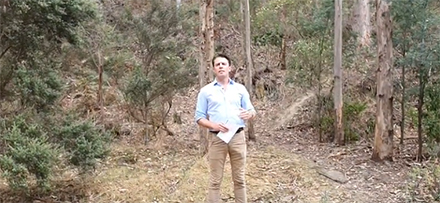Australia’s nine Regional Forestry Hubs have received a $9 million funding boost to support growth in the forest industries. Spread out for the next four years, the funding is part of a $10.6 million national investment which will help finance the existing forestry hubs around Australia, as well as establish two new hubs in Eden in New South Wales, and in the Northern Territory. Source: Timberbiz
Minister for Agriculture and Northern Australia David Littleproud said the Australian Government’s investment in the Regional Forestry Hubs was a show of faith in our forest industries and the benefits that they deliver for regional communities and the Australian economy.
“The Australian Government is providing more than $10.6 million over 4 years for existing Regional Forestry Hubs and the establishment of two new hubs in Eden NSW, and the Northern Territory,” Mr Littleproud said.
“We are committed to delivering positive outcomes for the industry Australia-wide and are backing those who rely on the productivity of the sector every step of the way.”
“These key forestry areas across the country have strong potential for growth and innovation, with skilled forestry workers, transport routes and processing plants,” Mr Littleproud said.
Australian Forest Products Association CEO Ross Hampton said the additional Regional Forestry Hubs and recent changes to the Emissions Reduction Fund that allows new plantations to contribute to Australia’s emissions reductions are a great start, but more was needed to deliver the urgently needed timber for our homes.
“Australia imports about a quarter of the timber we use and the disruption to supply chains through the COVID pandemic has shown that is not a reliable position. We must become far more self-sufficient. And yet we are going backwards in tree area.
“The latest ABARES report shows that plantations in Australia have shrunk from around 2 million hectares to less than 1.8 million hectares. Meanwhile, by 2035 Australia will fall 250,000 house frames short of producing enough timber to meet demand unless we urgently grow our timber plantation estate.
“Growing new timber plantations should be a major part of Australia’s net-zero emissions by 2050 goal, producing a win for the environment, the farmer and the builders needing timber.”
Assistant Minister for Forestry and Fisheries Jonno Duniam said the Regional Forestry Hubs bring together communities, industry and governments to unlock opportunities and address challenges in each region.
“The hub model empowers each region to identify and assess their local issues and develop local solutions, while benefitting from working alongside other hubs across Australia,” Senator Duniam said.
“This is all about getting the right trees, at the right scale, in the right places.
“I am really pleased with the way the hubs are working together and building momentum across the country, and they have been enormously popular with the industry.
“The sector has faced numerous challenges over the last couple of years, but our forest industries are resilient and we’re working with the sector to secure its future.
“Two new hubs are also coming online: the recently established Northern Territory Regional Forestry Hub and a hub in the Eden region which is in the final stages of development.
“Together we’re working to build a strong and sustainable future for Australia’s forest industries.”
Mr Hampton said that by supporting the Regional Forestry Hubs, the Federal Government was acknowledging that the goal of one billion new trees should be all about ensuring growth occurs in the regional locations where there was the processing capacity, a skilled workforce and transport networks.
“As Assistant Minister for Forestry Senator Jonno Duniam says, we need the ‘right trees at the right scale in the right locations’,” Mr Hampton said.
Tasmania Forestry Hub General Manager, Simon Talbot said the Tasmanian forestry sector was on the cusp of a unique period of growth, with unprecedented demand for value-add products—including construction and housing materials—driving innovation, investment, and employment opportunities.
The Hub will receive $900,000 as part of the Federal Government’s allocation.
“This investment is a show of confidence in our industry and the Hub will use this federal funding to help create a unified 2050 vision for Tasmania’s Forest products,” Mr Talbot said.
With the funding in hand, the hub will now establish a study to assess the national demand for timber, as well as a prospectus to examine which areas of the industry need investment, such as supply, infrastructure and research.






